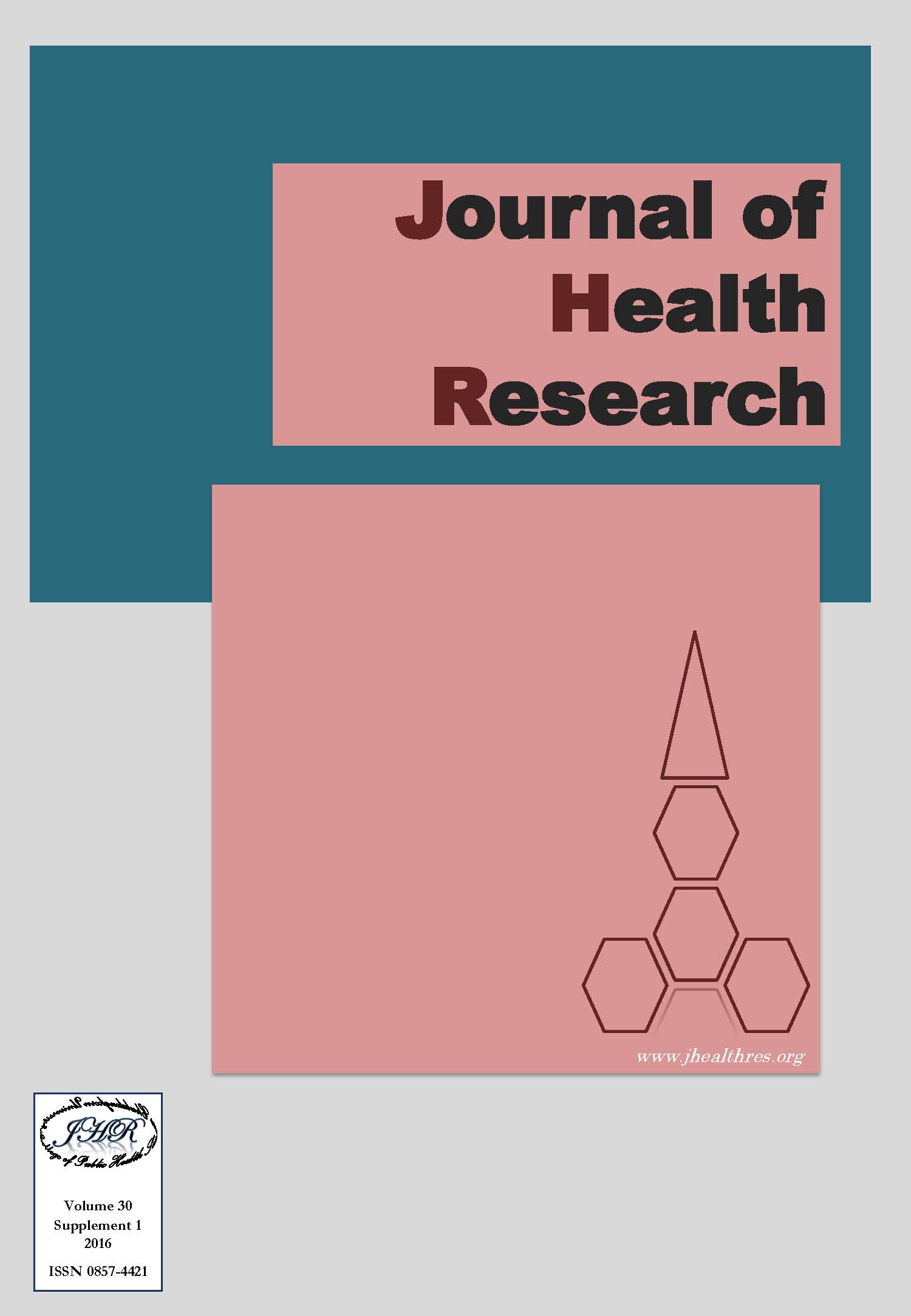Effect of reducing dietary sodium on urinary calcium excretion in healthy adults from Mahidol University
Keywords:
Dietary sodium, Monosodium glutamate, Repeated measures, Spot morning urine, Urinary calcium excretionAbstract
Background: There is evidence that not only an increasing sodium intake but also an inadequate dietary calcium intake can worsen the non-communicable diseases such as hypertension, osteoporosis, etc. Moreover, most people were less likely to maintain adequate calcium intake or to control sodium intake. Preventing calcium loss from the body along with sodium intake reduction, instead of controlling sodium intake alone or maintaining adequate calcium intake itself, could provide a better outcome in prevention and control of diet related health problems. This study aims to evaluate the effect of reducing dietary sodium on urinary calcium excretion in healthy subjects.
Methods: A single-group repeated measures design was used with twenty healthy adults from Mahidol University, Thailand for three experimental periods of three days each. Participants were provided three study diets; a normal standard recipe (100 percent sodium) followed by two experimental recipes with 30 percent reducing sodium content, one was added with 0.3 percent monosodium glutamate and another without adding monosodium glutamate in it. Dietary sodium and calcium intakes were evaluated form three-day food records whereas changes in urinary calcium excretion over three study phases were observed from spot morning urine samples taken at the end of each study period.
Results: There was a significant positive correlation between dietary sodium intake and urinary calcium excretion (r = 0.262, P-value = 0.043), or urinary calcium to creatinine ratio (r = 0.241, P-value = 0.032). Changes in urinary calcium excretion over three study periods were observed proportionately with changes in dietary sodium intake rather than that of calcium intake itself, and regression analysis indicated that every 1,000 mg/day increment in sodium intake could increase urine calcium loss by 8 mg/dL (P-value = 0.037) after adjusting for other dietary and lifestyle confounding factors.
Conclusion: The observation of lowering urinary calcium loss by consuming reduced sodium diets suggests a plausible mechanism through which dietary sodium reduction might lead to more favorable outcomes in the medical nutrition therapy for patients with hypertension, osteoporosis and other chronic non-communicable diseases. Furthermore, these results appear to support the “Thailand Salt Reduction Initiative Strategy”.







